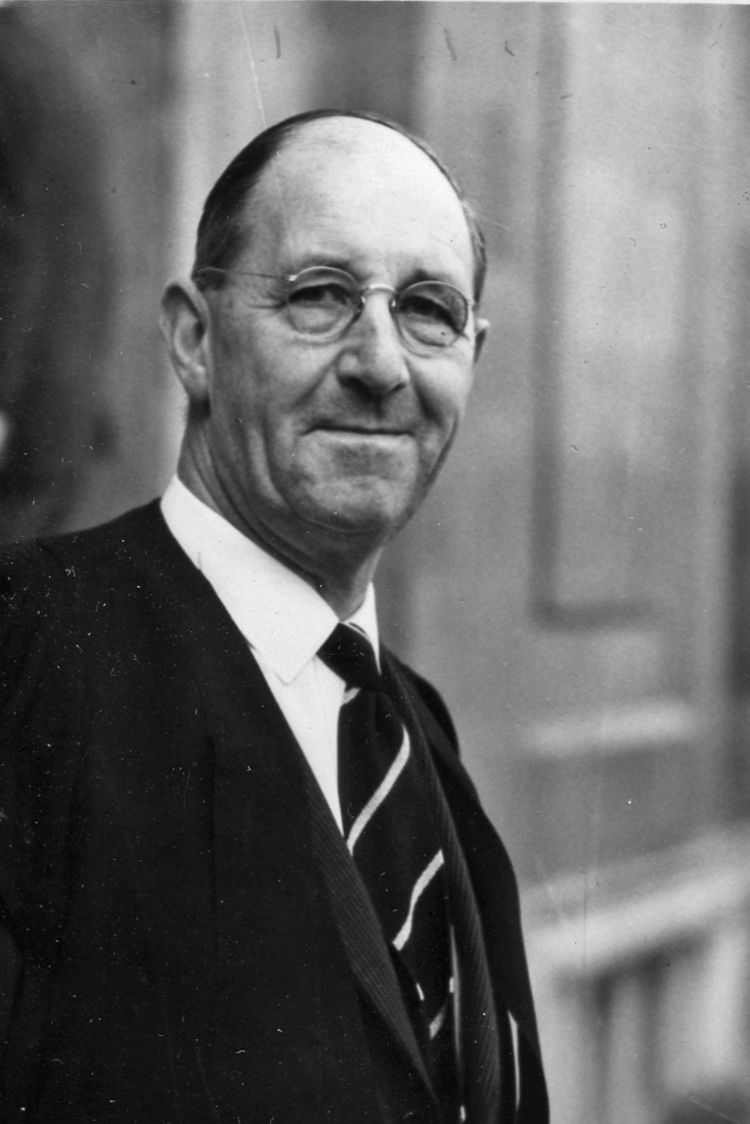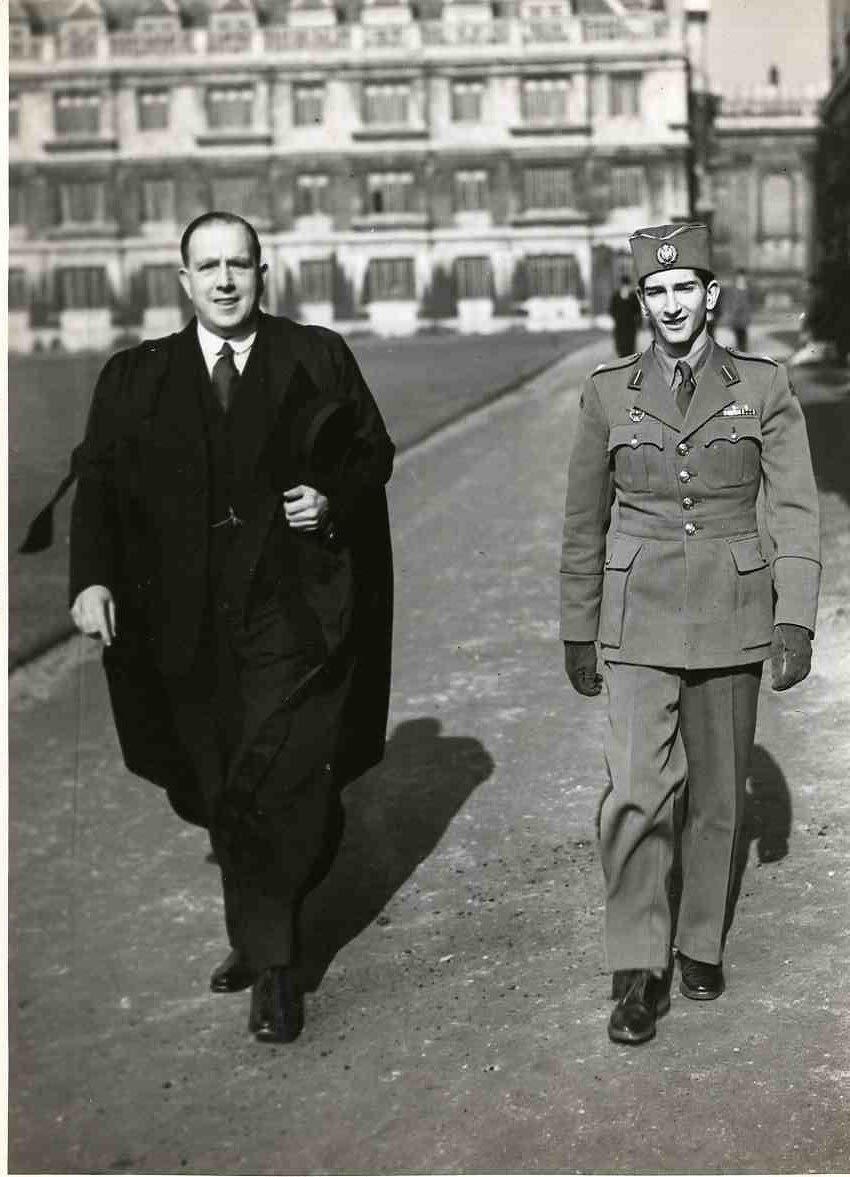When Clare changed direction

The election of Ashby – who was neither an alumnus or Fellow of Clare, nor a Cambridge graduate – represented a radical break with the past. What was in the minds of the Fellows when they took that momentous decision in the late 1950s?
Tim Smiley (1949), who became a Fellow of Clare in 1955, is one of the few people alive today who participated in the vote that chose Ashby as Thirkill’s successor. In a special interview for Clare News, he recalled the debates, the machinations, and the election itself.
The Clare of the 1950s was a very different place from today’s College. There were, of course, no women, either on the Fellowship or in the student body. There was just a handful of postgraduate students. And there were just 24 Fellows. It was a small, sometimes claustrophobic community. Tradition was everything. Presiding over it all was Henry Thirkill, known affectionately as ‘Thirks’, who had served successively as Senior Tutor and Master since the 1920s. But in this post-war period, change was in the air, and there were those on the Governing Body who hankered after a more progressive vision for Clare. In Tim Smiley’s view, ‘Thirks over-stayed his time.’

Henry Thirkill with King Peter II of Yugoslavia (1941)
Henry Thirkill with King Peter II of Yugoslavia (1941)
‘When Thirks finally retired [making the announcement in 1957], the Fellows formed three camps: there were the frivolous intellectuals, there were the serious scientists, and there was the old guard, the Fellows who had been there with Thirks before the War.’
Brian Reddaway, who had been a Fellow for two decades, called a meeting of all the Fellows junior to him. The consensus perhaps took him by surprise: ‘It was absolutely clear that they were not on for having one of the old guard. One reason was that Thirks had expressed a wish to stay on in College in his old room, and the idea that these Fellows who had been under his thumb for 20 years would have him running the College from just next door to the [Master’s] Lodge was the last straw.’
The view of the junior Fellows effectively ruled out the two leading contenders, Harry Godwin and Harold Taylor. The older Fellows who had expected a shoe-in were bitterly disappointed. As Tim recalled, ‘The old guard – who realised or were told that none of the current Fellows was going to be elected – didn’t take very kindly to this. The retired Bursar, Harrison, came up from Eastbourne specially to berate the younger Fellows for their impertinence. It was not well received. He went back and died within a week.’ Each of the three camps then put forward their own candidate.
‘The old guard put up a man called E.T. Spooner who had been Senior Tutor and had gone off to London. He had belonged to the
Thirkill era.’ The younger Fellows proposed the Regius Professor of Greek, Denys Page. ‘Of the two meetings that I remember,’ says Tim, ‘the one with Page was just a series of laughs’. But Clare had a lucky escape: ‘Page went on to be Master of Jesus where he showed a quite unexpectedly authoritarian streak’.
‘The man who named Eric Ashby was John Baker, Professor of Engineering, designer of the famous Morrison air-raid shelter that fitted under kitchen tables. John Baker did not see eye to eye with the rest of the older Fellows. And he proposed Eric Ashby who not only was not a Fellow, he was not a Clare man and not even an Oxbridge man.’
With the three groups of Fellows being of more or less equal size, so things stuck for twelve months – as Tim puts it diplomatically, ‘a
prolonged year of discussion’. The ‘serious intellectuals’ fell in behind John Baker’s idea of Eric Ashby after he had visited the College and been interviewed. The old guard stood firm, but eventually cracks began to develop. ‘Charlie Moule was the first to defect from the conservatives, and this led to a general weakening of their position.’ As for the younger Fellows, Tim recalls, ‘Us lot were quite happy to join the middle group: it was a case of anybody but a member of the old guard.’
The decision came down to ‘two visions of the future of the College’. Eventually, ‘the felt need to get rid of Thirks’s influence’ won the
day. ‘The others with good grace joined in, and that was that: Eric Ashby was elected unanimously.’
Ashby was the first Master in the College’s history not to have been a Fellow beforehand. Indeed, the statutes required him to be
elected and admitted to the Fellowship before he could take up the Mastership. Pending his arrival, in 1959, Harry Godwin had his brief
moment in the sun, serving as acting Master for a year. But the Ashby era would soon usher in a radical new direction for Clare. Tim sums it up nicely, ‘This was the defining episode in the history of the College in the 20th century.’
